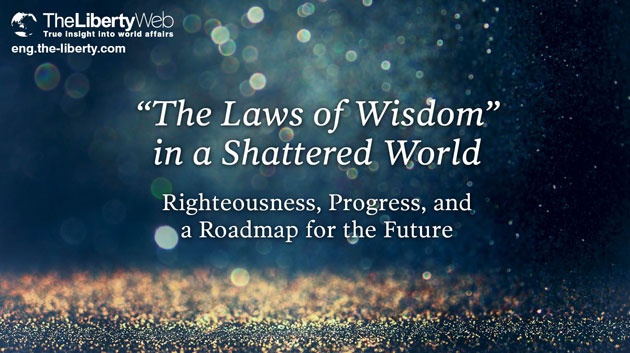“The Laws of Wisdom” in a Shattered World
Righteousness, Progress, and a Roadmap for the Future
Perhaps what’s needed now more than ever is a greater understanding of Wisdom in tackling the conflicts that ail the world. In particular, understanding the Paris attacks, the Islamic State execution of prisoners, and the Western response to these events requires a deeper understanding of Righteousness and Wisdom that takes into account not just the political, the economic, and the historical, but also an enlightened view of the religious truths that underlie the various religions. In the end, Master Okawa offered his wisdom by providing a “rule of thumb” on how to decide if a particular action or group is righteous; to imagine a world where if the particular act or group’s ideologies were to be taken to an extreme, would it result in greater happiness or suffering?
From “the Lecture on ‘The Laws of Wisdom'” (1/11/2015)
At its root, the Paris attacks is an issue of Wisdom, and a problem of understanding.
If the Muslim attackers had read the teachings of Happy Science, I don’t believe that they would have done what they did. On the other hand, if those that believe that the ideas of human rights written into modern law is what’s protecting their citizens, had read the texts from Happy Science, they wouldn’t have fallen back on the narrative of “freedom vs religion”.
Fundamentally, it’s odd for conflicts to deepen when individuals believe in religion. Truth is something that makes men increasingly free, both in thought and action, the more one learns.
“Progress from Righteousness” Q&A Session (1/24/2015)
(As far as the kidnapping of Japanese are concerned), it’s a classic case of “Alibaba and the Forty Thieves”, so we shouldn’t respond to their demands. However, the Prime Minister of Japan does need to say that “they are wrong”, and that “if the Japanese hostages are killed, then we will deepen our collaboration with nations that are in conflict with the Islamic State”. If we don’t put forth those messages based on value judgments, we can’t hope to do anything in the international arena.
Broadly, there are two ways of thinking about righteousness. First, there is the view that righteousness is something that God decides. The other is that it’s something that is decided in a democratic parliament or congress. In between, there is the view that, while reflecting upon the will of God, we should decide democratically what to do.
But both contain its problems. It’s fine to let God decide what’s right, but most don’t understand what Allah is really thinking, which means they’re simply acting upon what they believe is His will. On the other hand, the West seems to have come to the conclusion that Islamic fundamentalists are evil, and have separated them from most other Muslims, but from the point of view of Muslims, realizing the world during Muhammad in today’s world is “good”. In addition, the West seems to be equating the cultural tradition of patriarchy with the Islamic teachings, and are criticizing Islam based on that mistaken belief.
It’s difficult to decide what is right and wrong, but there is one way to distinguish between the two. It’s to imagine a situation where the particular idea is taken to its extreme. If the territory controlled by the Islamic State were to spread, it would result in untold suffering of many people. So one can make the judgment that that would be wrong.
This year, as the issue of religion and righteousness are contemplated, it’s important to understand that a delicate balancing act is occurring between righteousness that’s within the realm of God, and that which was created by man.
Many in Japan believe that God or spirits goes against Reformation and scientific thought seen in the West, but this is a mistake. No matter how much eras change, God will never cease to exist.



















